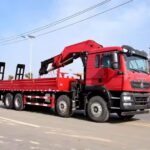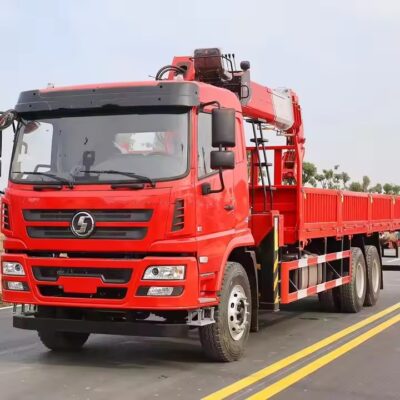A wrecker, also known as a tow truck, is a vital tool for roadside assistance and vehicle recovery. Whether you have an integrated towing wrecker or a flatbed wrecker, it is essential to maintain optimal performance to ensure safe and efficient operations. Here are key considerations to keep in mind when using a newly purchased wrecker:
Lifting and Winching Capacity
- Adhere to Capacity Limits: Ensure that the lifting capacity does not exceed 70% of the wrecker’s rated capacity. Similarly, the maximum winch pull should also not exceed 70% of its rated capacity. This precaution helps prevent overloading and potential damage to the vehicle.
Component Check and Maintenance
- Inspect Connections: Before and after each operation, check the connection and tightness of all components. Pay special attention to the connection of hooks and steel cables, the winch and its base, and the subframe to the mainframe. Regular inspections can prevent mechanical failures during critical operations.
Driving Precautions
- Component Retraction: Ensure all components are retracted to their original state during driving. All control handles should be in the neutral or off position, and the power take-off must be disengaged.
- Towing Arm Position: Avoid lowering the towing arm too much while driving, as it can affect the vehicle’s performance and increase the risk of damage.
- Drive Slowly When Towing: Particularly on curves or downhill sections, drive slowly to avoid sudden turns and braking, which can destabilize the towed vehicle.
Operational Safety
- Reversing: When reversing, ensure that the angle between the vehicles does not exceed 70 degrees to prevent equipment damage.
- Hydraulic System Operation: Operate the control handles and hand throttle gently when using the hydraulic system. Use hydraulic oil from reputable manufacturers and avoid mixing different brands or types. The pressure of the hydraulic system’s relief valve is preset at the factory and should not be adjusted arbitrarily. Stop working if the hydraulic oil temperature exceeds 70 degrees Celsius.
- Lifting Operations: Follow lifting parameters strictly and avoid overloading. The telescopic cylinder of the lifting arm is primarily for adjusting the arm to the optimal towing position and should only be used under no or light load. Heavy lifting should be controlled by the hoisting cylinder of the lifting arm. Before starting work, if the lifting arm is fully extended, retract it by at least 50mm.
General Advice
- Turvallisuus ennen kaikkea: Always prioritize safety by following manufacturer guidelines and maintaining a cautious approach during operations.
- Regular Maintenance: Conduct regular maintenance checks to ensure that the wrecker remains in good working condition. This includes inspecting hydraulic systems, winches, and towing mechanisms.
Investing in a wrecker is cost-effective and can be highly profitable when operated correctly and safely. By adhering to these guidelines, you can ensure that your wrecker performs optimally and safely, providing reliable service in various roadside and recovery scenarios.












